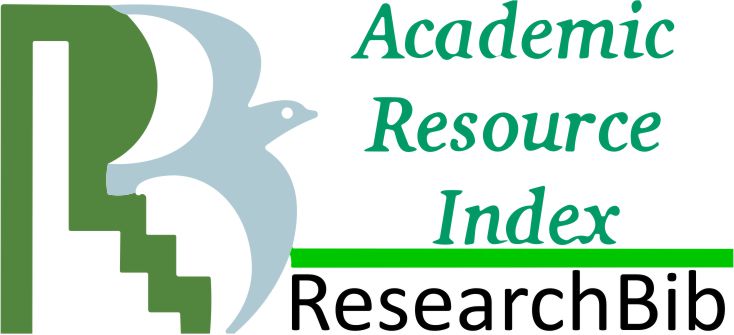DOI
10.21002/jaki.2018.08
Abstract
The purpose of this study is to investigate the effect of personal tenure between Audit Partner and Client CEO on firm’s likelihood to do upward earnings management. Using non financial firms listed on Indonesia Stock Exchange period 2012 – 2014, this study finds that personal tenure between Audit Partner and Client CEO have significant positive influence on firms’ likelihood to do upward earnings management and downward forecast guidance. The results of this study indicate that personal tenure positively influences both mechanisms of avoiding negative earnings surprises. Furthermore, since the company's resources in doing both mechanisms are often limited, this study also examines the impact of personal tenure on firm’s choices between the two mechanisms, by testing whether companies choose to do downward forecast guidance, but not upward earnings management or using upward earnings management but not downward forecast guidance. The results show that personal tenure positively associated with the likelihood of firms doing downward forecast guidance without upward earnings management. The result indicates that lower independency of the audit partner due to longer tenure between Audit Partner and Client CEO encourage management to do earnings management by avoiding negative earnings surprise.
References
Abdelghany, K.E. (2005). Measuring the quality of earnings. Managerial Auditing Journal, Vol 20 No.9 , 1001-1015. Arel, B., Brody, R.G. dan Pany, K. (2005). Audit firm rotation and audit quality. The CPA Journal, Vol. 75, No.1 , 36-39. Ball, F., Tyler, J. dan Wells, P. (2015). Is audit quality impacted by auditor relationship? Journal of Contemporary Accounting & Economics Vol. 11 , 166-181. Bartov, E., Givoly, D. dan Hayn, C. (2002). The rewards to meeting or beating earnings expectations. Journal of Accounting and Economics, Vol. 33 , 173-204. Becker, C., DeFond, M., Jiambalvo, J. dan Subramanyam, K. (1998). The effect of audit quality on earnings management. Contemporary Accounting Research, Vol.15 , 1-24. Bernard, V. dan Stober, T. (1989). The nature and amount of information in cash flows and accruals. The Accounting Review, 64 , 624-652. Blandon, J.G. dan Bosch, J.M. (2013). Audit tenure and audit qualifications in a low litigation risk setting: an analysis of the Spanish market. Estudios de Economia Vol.40 , 133-156. Bowen, R., DuCharme, L. dan Shores, D. (1995). Stakeholder's implicit claims and accounting method choice. Journal of Accounting and Economics, Vol.20 , 255-95. Brooks L.Z., Cheng, A. dan Reichelt K.J. (2013). Audit firm tenure and audit quality : evidence from US firms. SSRN Electric Journal . Brown, L. dan Caylor, M. (2005). A temporal analysis of quarterly earnings tresholds: properties and valuation consequences. The Accounting Review, Vol. 80 , 423-40. Brown, L. dan Pinello, A. (2007). To what extent does the financial reporting process curb earnings surprise games? Journal of Accounting Research, Vol. 45 , 947-81. Brown, L. (2001). The temporal analysis of earnings suprises : profits versus losses. Journal of Accounting Research, Vol.39 , 221-41. Clarkson et al. (1995). A stakeholder framework for analyzing and evaluating corporate social performance. Academy of Management Review, 20 . Davis L.R., Soo, B. dan Trompeter, G. (2000). Auditor tenure, auditor independence, and earnings management. Working Paper, Michigan Tech University . DeAngelo, L.E. (1981). Auditor size and audit quality. Journal of Accounting and Economics 3 , 183-199. Decho, P.M dan Skinner, D.J. (2000). Earnings management: reconciliating the views of accounting academics, practitioners, and regulators. Accounting Horizon Vol. 14 No.2 , 235-250. Dechow, P., Richardson, S. dan Tuna, L. (2003). Why are earnings kinky? An examination of the earnings management explanation. Review of Accounting Studies, Vol. 8 , 355-84. Fitriany. (2011). Comprehensive Analysis of Analisis Impact of Audit Firm's Competency and Indpendency with Audit Quality. Graduate Program Accounting Faculty University of Indonesia. Dissertation. Francis, J., Maydew, E. dan Sparks, H. (1999). The role of big six auditors in the credible reporting of accruals. Auditing: A Journal of Practice and Theory, Vol. 18 , 17-34. Francis, J., Philbrick, D. dan Schipper, K. (1994). Shareholder litigation and corporate disclosures. Journal of Accounting Research, Vol.32 , 137-64. Gavious, I. (2007). Alternative perspectives to deal with auditor'sagency problem. Critical Perspective on Accounting, Vol. 18 , 451-467. Givoly, D., Hayn, C.K. dan Katz, S.P. (2010). Does public ownership of equity improve earnings quality? The Accounting Review Vol. 85, No.1 , 195-225. Godfrey, J., Hodgson, A., Tarca, A., Hamilton, J. dan Holmes, S. (2010). Accounting Theory. John Wiley and Sons . Healy, P.M. dan Wahlen, J.M. (1999). A review of the earnings management literature and its implications for standard setting. Accounting Horizon Vol. 13 No. 4 , 365-383. Ho, L.J., Liu, C.S.., dan Schaefer, Thomas. (2010). Audit tenure and earnings surprise management. Review of Accounting and Finance Vol.9 , 116-138. Jelinek, K.2007. The effect of leverage increases on earnings management. Journal of Business and Economic Studies 13: 24-46 Johnson, V., Khurana, I. dan Reynolds, J. (2002). Audit tenure and the quality of financial reports. Contemporary Accounting Research, Vol. 19 , 637-60. Kothari, S.P., Leone, A. dan Wasley, C. (2005). Performance matched discretionary accrual measures. Journal of Accounting and Economics, Vol. 39 , 163-97. Llukani, Teuta. 2013. Earnings Management and Firm Size: An Empirical Analyze in Albanian Market. European Scientific Journal, Vol 9 (16), 135-143. Li, S. F., McDowell, E., More, E.A., 2005. Accrual Based Earnings management, Real Transactions Manipulation and Expectation Management: U.S. and International Evidence. Journal of Global Business Management, 1 (1), 1-7. Matsumoto, D. (2002). Management's incentives to avoid negative earnings surprises. The Accounting Review, Vol. 77 , 483-514. Mikhail, M., Walther, B., & Willis, R. 1999. Does Forecast Accuracy Matter to Security Analysts? The Accounting Review, 74(2), 185-200 Myers, J., Myers, L., dam Omer, T. (2003). Exploring the term of the auditor-client relationship and the quality of earnings: a case of mandatory auditor rotation? The Accounting Review, Vol. 78 , 779-99. Pierre, St., dan Anderson. (1984). An analysis of the factors associated with lawsuits against public accountants. Accounting Review 59 (2) , 242-263. Rahmina, L.Y., Agoes, S. . (2014). Influence of auditor independence, audit tenure, and audit fee on audit quality of members of capital market accountant forum in Indonesia. Social and Behavioral Sciences, Vol. 164 , 324-331. Sankaraguruswamy, S. dan Sweeney, R.J. (2005). Earnings Management and Expectations Management: Implications for Analyst Rationality. Social Science Research Network . Schipper, K. dan Vincent, L. (2013). Earnings quality. Accounting horizons, Vol. 17 . Scott, W.R. (2007). Financial Accounting Theory. Pearson Prentice Hall . Skinner, D., dan Sloan, R. (2002). Earnings surprises, growth expectations, and stock returns or don't let an earnings torpedo sink your portofolio. Review of Accounting Studies, Vol. 7 , 289-312. Velury, U. dan Jankins, D. (2006). Institutional ownership and the quality of earnings. Journal of Business Research, ElSevier, Vol. 59 (9) , 1043-1051. Wallace, W.A. (1980). The economic role of the audit in free and regulated markets. New York: Mc Millan Publishing . Watts, R.L dan Zimmerman, J.L. (1986). Positive Accounting Theory. Prentica Hall London . Yong, O.K., Evans, M. dan Njoroge, K. . (2013). An examination of the statistical significance and economic implications of model-based and analyst earnings forecasts. Singapore Management University Research Collection
Recommended Citation
Amelia, Devitha and Wardhani, Ratna
(2018)
"THE EFFECT OF PERSONAL TENURE ON EARNINGS SURPRISE MANAGEMENT,"
Jurnal Akuntansi dan Keuangan Indonesia: Vol. 15:
No.
2, Article 2.
DOI: 10.21002/jaki.2018.08
Available at:
https://scholarhub.ui.ac.id/jaki/vol15/iss2/2












